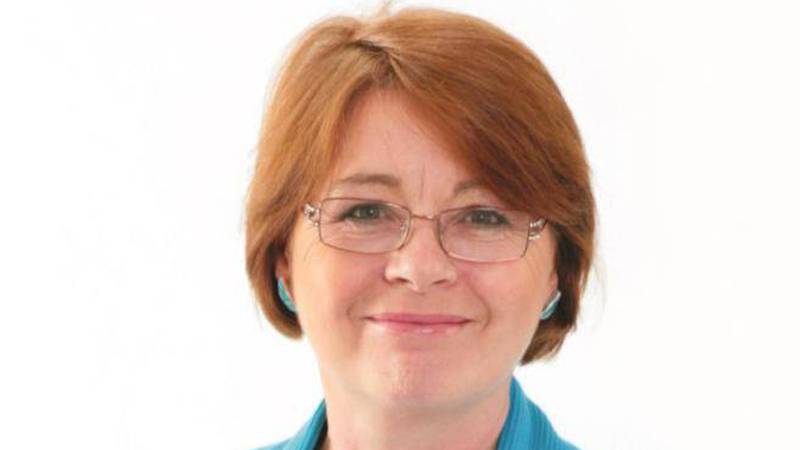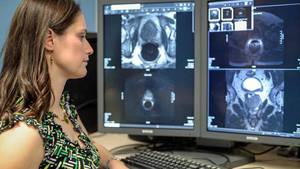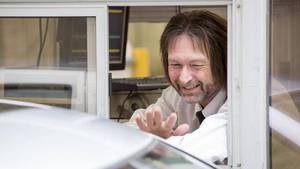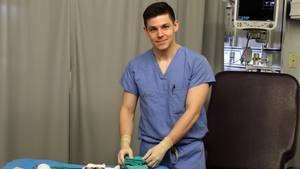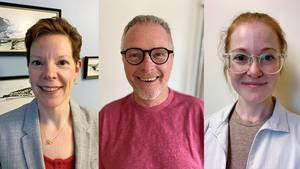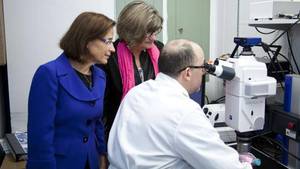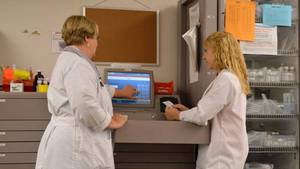To offer a world-class level of health care, there must be a mandate to have high standards of care, a long-term vision for the future, revolutionary research and a strong commitment to making it happen.
All qualities best embodied by those individuals who hold these prestigious endowed research chairs.
As catalysts for change, endowed research chairs promote growth in a specific research field and are supported by a long-term financial commitment.
“What distinguishes an endowed chair is that an amount of money is set aside, and the interest on that money funds the chair. It’s a secured fund and exists in perpetuity,” says Dr. Kenneth Rockwood, internal and geriatric medicine at the QEII.
The QEII Foundation has five endowed chairs: transplantation research, breast cancer research, cardiovascular outcomes research, joint mobility, and population cancer research. The QEII Foundation is currently fundraising for an endowed chair in palliative care research.
The funds come from philanthropy, as the usual standard is $3.5 – $4-million to sustain an endowed chair’s work. Dr. Rockwood says that kind of financial foundation secures time for the investigator, and allows the QEII to attract top-level researchers, such as Dr. Louise Parker.
Dr. Parker was appointed to the Canadian Cancer Society Nova Scotia Division Endowed Chair in Population Cancer Research in 2008. Originally from the U.K., she was invited by the Canadian Partnership Against Cancer to be part of a long-term national study — involving more than 300,000 people nationwide — to look into the causes of cancer and other diseases.
With projects already underway in Western Canada, Ontario and Quebec, Dr. Parker’s mandate was to set up an arm of that study in Atlantic Canada, titled Atlantic Path.
The project incorporates more than 25,000 Atlantic Canadians and looks at topics such as: arsenic and other metal contamination through toenail samples; the cardiovascular health of cancer survivors compared to those never having a cancer diagnosis; the effect of shift work employment on health; how different health conditions (obesity, diabetes, smoking, etc.) affect how genes work; and molecular evaluation of blood.
While the information that Atlantic Path will uncover is undoubtedly vital, what could become even more valuable is the legacy that the research will offer.
“We’re also now open for business for other researchers, with other research projects, to come along and ask for access to the samples so they can use our phenomenal data for their own research,” says Dr. Parker. “What’s really important is that this is becoming a resource for others.”
Dr. Parker expects Atlantic Path to run at least 30 years, and she acknowledges that this wouldn’t be possible without the presence of the endowed chair.
Dr. Parker sits on multiple national boards, continues to do international work as well, and has raised about $12-million since she began in the post – a testament to her status as a world-class researcher and fundraiser – Dr. Parker is exactly the type of person who embodies an endowed chair.
“We want to be able to say that our institution is known for particular ideas and expertise, and for that you need internationally-credible leading investigators,” says Dr. Rockwood.
Atlantic Path, and many other research projects in Atlantic Canada, could not be powered without endowed chairs.

